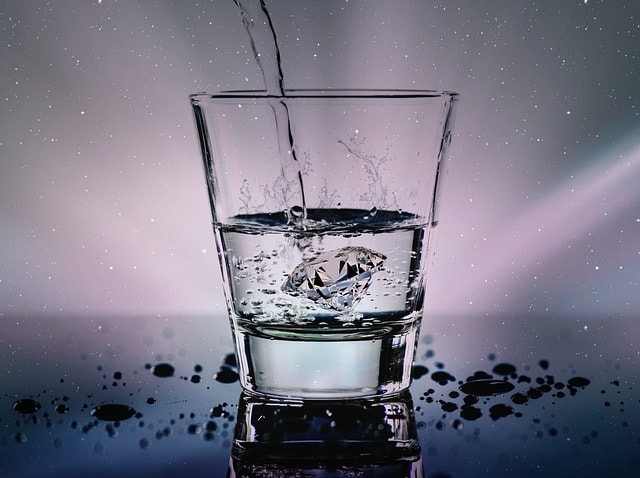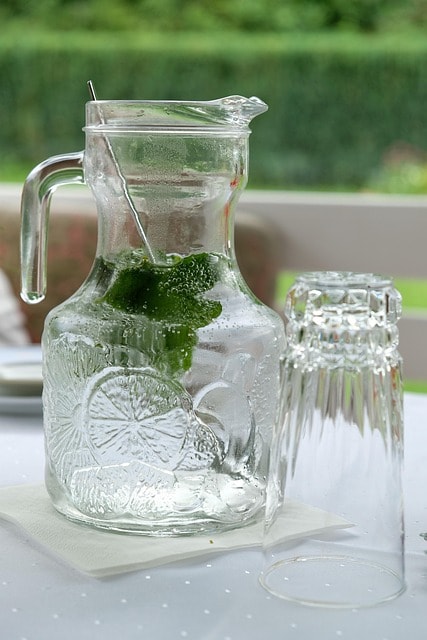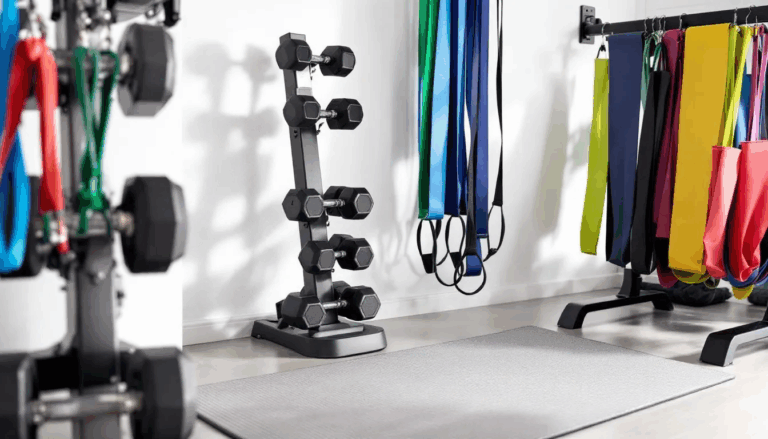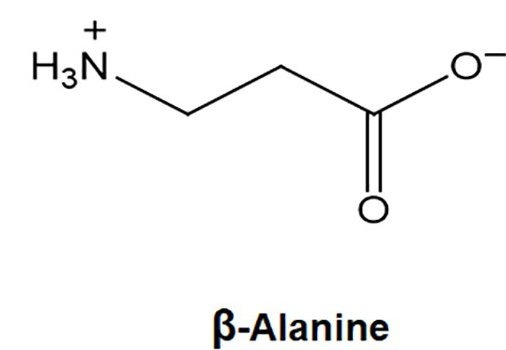Hydration for Older Adults: Why Water is Essential for Fitness and Health
Hydration for Older Adults: Why Water is Essential for Fitness…
Hydration for Older Adults: Why Water is Essential for Fitness and Health
Hydration for older adults is crucial for maintaining fitness and health, as hydration for older adults why water is essential for fitness and health becomes increasingly important with age. Proper hydration has direct implications on bodily functions such as electrolyte balance, digestion, and brain health, making it especially vital for older adults to prevent severe health issues related to dehydration. Aging reduces the sense of thirst and can lead to dehydration, affecting cognitive function, energy levels, and physical health. This article explains why water is essential for older adults and offers tips to ensure they stay properly hydrated.
Key Takeaways
- Hydration is essential for older adults to support bodily functions, enhance cognitive function, and prevent dehydration-related complications.
- Aging diminishes the sensation of thirst and kidney function, increasing older adults’ risk of dehydration and necessitating awareness of hydration needs.
- Practical strategies, such as regular fluid intake and incorporating water-rich foods, are vital for seniors to maintain hydration and overall health.
The Role of Hydration in Senior Health

Hydration is crucial for senior health, supporting essential bodily functions and preventing dehydration-related complications. Water is indispensable for nearly all body functions, crucial for maintaining overall health in older adults. Proper hydration boosts cognitive function, energy levels, and digestion, thereby enhancing daily activities and overall well-being. Hydration’s impact is especially significant in managing chronic health conditions such as diabetes, kidney disease, and high blood pressure, making personalized hydration strategies important for seniors.
For older adults, maintaining hydration is particularly important as it helps prevent mood changes, supports blood circulation, and enhances overall wellness. Dehydration can weaken the immune system, making seniors more susceptible to illnesses and infections. Dehydration also leads to an increased risk of severe health issues, such as falls, hospitalizations, and cognitive impairments, which can greatly affect quality of life in older adults. Factors such as temperature and physical activity levels can further increase water needs for seniors, underscoring the importance of adequate fluid intake.
Proper hydration protects against severe dehydration complications in older adults. Seniors can significantly improve their health and quality of life by drinking water regularly and monitoring hydration levels. Staying hydrated promotes good health and prevents age-related complications beyond just avoiding thirst.
How Aging Affects Hydration Needs
As we age, our bodies undergo several changes that affect hydration needs. One of the most significant changes is a reduced sensation of thirst, which can make older adults less aware of their hydration needs. This diminished thirst response means that seniors may not feel the urge to drink water regularly, leading to inadequate water intake and a heightened thirst sensation.
Additionally, kidney function naturally declines with age, leading to increased urination and fluid loss. This can exacerbate the higher risk of dehydration, as the body loses fluids more rapidly. Furthermore, decreased muscle mass in older adults results in lower total body water content, making them more prone to dehydration.
Older men, in particular, may struggle more with maintaining stable body temperature, making hydration even more critical. Understanding these age-related changes is essential for older adults hydration needs to be vigilant about their hydration needs. Understanding the impact of normal aging on hydration allows seniors to take proactive steps to maintain optimal health by drinking enough fluids.
Benefits of Proper Hydration for Seniors

Proper hydration offers numerous benefits for seniors, including enhanced cognitive function, improved physical health, and better body temperature regulation. Hydration important for keeping hydrated can help prevent headaches and support overall fitness and health.
These benefits highlight the significant hydration’s impact of staying hydrated on senior health. Additionally, research shows that proper hydration can support weight loss and healthy weight management in older adults by positively affecting body weight and body composition.
Enhanced Cognitive Function
Hydration is vital for maintaining brain function and preventing cognitive decline in older adults. Dehydration can impair cognitive function, affecting memory, mood, and concentration. Even mild dehydration can lead to cognitive impairment, impacting daily activities and overall quality of life.
Memory issues are common in older adults, and forgetting to drink enough water can exacerbate these problems. Mild dehydration can also lead to fatigue, dizziness, and headaches, further affecting cognitive performance.
Increasing daily water intake can help seniors improve cognitive functions, stabilize emotions, and reduce anxiety.
Improved Physical Health
Staying hydrated has a direct impact on physical health, particularly for older adults. Adequate fluid intake enhances energy levels by improving circulation and oxygen flow to the brain. It also helps reduce joint pain by keeping cartilage in the joints lubricated, making mobility more comfortable, contributing to healthy aging.
Good hydration is vital for joint health and overall physical well-being in seniors. It can significantly lower the chances of developing kidney stones, which are more common in older adults. Proper hydration helps seniors maintain physical health and reduce the risk of dehydration-related conditions.
Hydration supports physiological functions, promote hydration overall health and fitness. It is crucial for older adults to stay hydrated to prevent health complications and enhance their quality of life. Additionally, proper hydration may help reduce atherosclerosis risk, as suggested by findings from studies such as the ‘Atherosclerosis Risk in Communities’ study.
Better Body Temperature Regulation
Proper hydration is essential for regulating body temperature, especially in older adults. Water helps produce sweat, which cools the body and prevents overheating. This is particularly important during hot weather or physical activities when the body needs to maintain a stable temperature.
Adequate hydration ensures effective sweat production, which is vital for cooling the body and protecting vital organs from heat-related stress. By staying hydrated, seniors can better regulate their body temperature and reduce the risk of heat stroke and other heat-related illnesses.
Recognizing Signs of Dehydration in Older Adults
Recognizing the signs of dehydration early is crucial for preventing serious health complications in older adults. Common symptoms include dry mouth, dark yellow urine, and feelings of confusion. These signs indicate that the body is not receiving enough fluids and needs immediate attention.
Undiagnosed diabetes can lead to increased urination, depleting the body’s water supply and increasing the risk of dehydration. Persistent vomiting or diarrhea can also rapidly escalate dehydration in seniors, necessitating more vigilant fluid intake. High fever is another condition that can accelerate dehydration, making it essential to monitor fluid levels closely.
Recognizing these common signs early helps prevent severe dehydration and its associated health risks. Older adults and their caregivers should be aware of these symptoms and take proactive measures to maintain hydration.
Barriers to Hydration in Older Adults
Older adults often encounter a range of barriers that make maintaining proper hydration more challenging. One of the most significant obstacles is a reduced thirst sensation, which can lead to inadequate water intake even when the body needs more fluids. As kidney function naturally declines with age, the body’s ability to regulate fluid levels diminishes, increasing the risk of dehydration and related health conditions such as urinary tract infections and kidney disease.
Medications commonly prescribed to older adults, including blood pressure medications and certain diuretics, can further contribute to fluid loss. This makes it even more important for seniors to monitor their fluid intake and be aware of the potential for dehydration risk. Cognitive impairments, such as dementia, can make it difficult for individuals to remember to drink water regularly, while physical disabilities may limit access to drinking water or the ability to use a water bottle independently.
Environmental factors also play a role. Living in hot weather or environments with limited access to water-rich foods can increase fluid loss and make it harder to stay hydrated. Social isolation is another concern, as older adults who live alone may neglect regular fluid intake, further raising the risk of dehydration.
Recognizing the common signs of dehydration—such as dry mouth, dark yellow urine, muscle cramps, and reduced urine output—is essential for preventing severe health complications. Regular fluid intake, including drinking water and consuming hydrating foods like fruits and vegetables, is crucial for maintaining hydration levels and supporting overall health and well-being.
Healthcare providers play a vital role in helping older adults overcome these barriers. They can encourage the use of a reusable water bottle, help monitor urine output to assess hydration status, and work with individuals to develop a personalized hydration plan that considers their unique health status, medications, and lifestyle. Systematic reviews have shown that adequate water consumption positively impacts body weight and body composition, further emphasizing the importance of good hydration for healthy aging.
By understanding and addressing these barriers, older adults can take proactive steps to stay hydrated, maintain physical health, support cognitive function, and protect their vital organs. Prioritizing hydration and working closely with healthcare providers ensures that older adults enjoy better health outcomes and a higher quality of life.
Barriers to Hydration in Older Adults
Older adults often encounter a range of barriers that make maintaining proper hydration more challenging. One of the most significant obstacles is a reduced thirst sensation, which can lead to inadequate water intake even when the body needs more fluids. As kidney function naturally declines with age, the body’s ability to regulate fluid levels diminishes, increasing the risk of dehydration and related health conditions such as urinary tract infections and kidney disease.
Medications commonly prescribed to older adults, including blood pressure medications and certain diuretics, can further contribute to fluid loss. This makes it even more important for seniors to monitor their fluid intake and be aware of the potential for dehydration risk. Cognitive impairments, such as dementia, can make it difficult for individuals to remember to drink water regularly, while physical disabilities may limit access to drinking water or the ability to use a water bottle independently.
Environmental factors also play a role. Living in hot weather or environments with limited access to water-rich foods can increase fluid loss and make it harder to stay hydrated. Social isolation is another concern, as older adults who live alone may neglect regular fluid intake, further raising the risk of dehydration.
Recognizing the common signs of dehydration—such as dry mouth, dark yellow urine, muscle cramps, and reduced urine output—is essential for preventing severe health complications. Regular fluid intake, including drinking water and consuming hydrating foods like fruits and vegetables, is crucial for maintaining hydration levels and supporting overall health and well-being.
Healthcare providers play a vital role in helping older adults overcome these barriers. They can encourage the use of a reusable water bottle, help monitor urine output to assess hydration status, and work with individuals to develop a personalized hydration plan that considers their unique health status, medications, and lifestyle. Systematic reviews have shown that adequate water consumption positively impacts body weight and body composition, further emphasizing the importance of good hydration for healthy aging.
By understanding and addressing these barriers, older adults can take proactive steps to stay hydrated, maintain physical health, support cognitive function, and protect their vital organs. Prioritizing hydration and working closely with healthcare providers ensures that older adults enjoy better health outcomes and a higher quality of life.
Practical Tips for Staying Hydrated

While maintaining hydration can be challenging for older adults, practical strategies can help ensure they stay hydrated. In addition to water, beverages such as fruit juices and alcoholic drinks with up to 4% alcohol can also contribute to overall fluid intake for older adults. From setting reminders to incorporating water-rich foods into their diet, these tips can help seniors maintain proper hydration and prevent dehydration.
Regular Fluid Intake
Consistent fluid intake is crucial for older adults, even if they don’t feel thirsty. Drinking fluids regularly throughout the day helps maintain hydration levels and supports overall health. Setting reminders or using a reusable water bottle can help seniors remember to drink water and stay hydrated.
Establishing a routine for drinking water helps seniors develop good hydration habits and ensures daily fluid intake. Regular fluid intake is key to supporting physical health and preventing dehydration in older adults, while also being mindful of water consumption.
Incorporating Water-Rich Foods
Incorporating water-rich foods into the diet is an effective way to boost hydration. Excellent options that can help increase fluid intake include:
- Fresh fruits and vegetables
- Soups
- Broths
- Yogurt
Cucumbers, watermelons, and lettuce are particularly hydrating and can significantly enhance hydration levels.
Including these foods in meals helps seniors improve hydration and enjoy additional nutritional benefits. Hydrating foods are a delicious and nutritious way to ensure adequate fluid intake.
Monitoring Medication Effects
Certain medications can contribute to fluid loss. Examples include diuretics and blood pressure medications, which increase the risk of dehydration. It is important for older adults to be aware of these effects and monitor their hydration levels closely.
Consulting healthcare providers about medications and discussing possible alternatives can help manage fluid loss and maintain proper hydration by encouraging seniors to drink more fluids. Staying informed about medications allows seniors to take proactive steps to prevent dehydration and support overall health.
For active seniors, staying hydrated is essential to maintain fitness and overall health. Drinking water before, during, and after physical activities helps prevent dehydration and supports an active lifestyle. Proper hydration strategies are crucial for seniors who engage in regular exercise or outdoor activities.
Implementing these strategies can help active seniors stay hydrated and enjoy their activities without the risk of dehydration. Prioritizing hydration enhances physical performance and overall well-being in seniors.
The Impact of Hydration on Chronic Conditions
Proper hydration is critical in managing chronic diseases such as diabetes and high blood pressure in older adults. Chronic health conditions can disrupt fluid balance, increasing the dehydration risk and the need for vigilance regarding hydration. Dehydration can exacerbate these conditions, leading to increased hospital stays and readmissions.
Systematic reviews have summarized evidence showing that proper hydration plays a significant role in managing chronic conditions in older adults.
Hydration supports kidney function by diluting mineral concentration in urine, helping to prevent kidney stones and improve kidney health. It also aids in detoxification by eliminating waste and harmful substances from the body. Proper hydration helps older adults better manage chronic conditions and improve overall health.
Inadequate hydration can worsen metabolic conditions and increase the risk of diabetes complications among older adults. Adequate fluid intake prevents complications and promotes good health.
Older adults should consult a healthcare provider for personalized hydration strategies, especially when managing chronic health conditions.
Creating a Personalized Hydration Plan
Creating a personalized hydration plan tailored to individual needs is crucial for maintaining optimal hydration. Consulting healthcare providers can help determine specific fluid needs based on health history, medications, and lifestyle factors. Personalized guidance from healthcare providers ensures that seniors receive the right amount of fluids to support their health.
A personalized hydration plan should consider various factors, including individual preferences, daily routines, and any existing health conditions. Following a tailored plan allows older adults to effectively manage hydration and improve well-being.
Summary
In conclusion, proper hydration is essential for maintaining health and fitness in older adults. Understanding how aging affects hydration needs and recognizing the signs of dehydration can help seniors take proactive steps to stay hydrated. The benefits of hydration extend to cognitive function, physical health, and body temperature regulation, making it a key component of overall wellness.
By incorporating practical tips and creating personalized hydration plans, seniors can ensure they consume enough fluids daily. Staying hydrated is not just about avoiding thirst; it’s about promoting good health and preventing age-related complications. Let’s make hydration a priority for a healthier, happier life.
Frequently Asked Questions
Why is hydration particularly important for older adults?
Hydration is particularly important for older adults as it supports essential bodily functions, cognitive function, and physical health, while also helping to regulate body temperature. Given that dehydration can lead to serious health complications in this age group, maintaining proper hydration is vital.
How does aging affect hydration needs?
Aging significantly affects hydration needs by diminishing the sensation of thirst and reducing kidney function, which heightens the risk of dehydration among older adults. Thus, it is crucial for seniors to proactively monitor their fluid intake.
What are the signs of dehydration in older adults?
Signs of dehydration in older adults include dry mouth, dark yellow urine, confusion, increased urination, and symptoms resulting from high fever or persistent vomiting. It is essential to recognize these signs early to ensure proper hydration and prevent complications.
How can older adults ensure they stay hydrated?
To ensure proper hydration, older adults should drink fluids consistently, include water-rich foods in their meals, and set reminders to maintain regular intake. Consulting healthcare providers about medications that may influence hydration is also advisable.
What are the benefits of proper hydration for seniors?
Proper hydration significantly enhances cognitive function and physical health in seniors, while also reducing the risk of kidney stones and supporting joint health. Additionally, it plays a crucial role in managing chronic conditions such as diabetes and high blood pressure.






